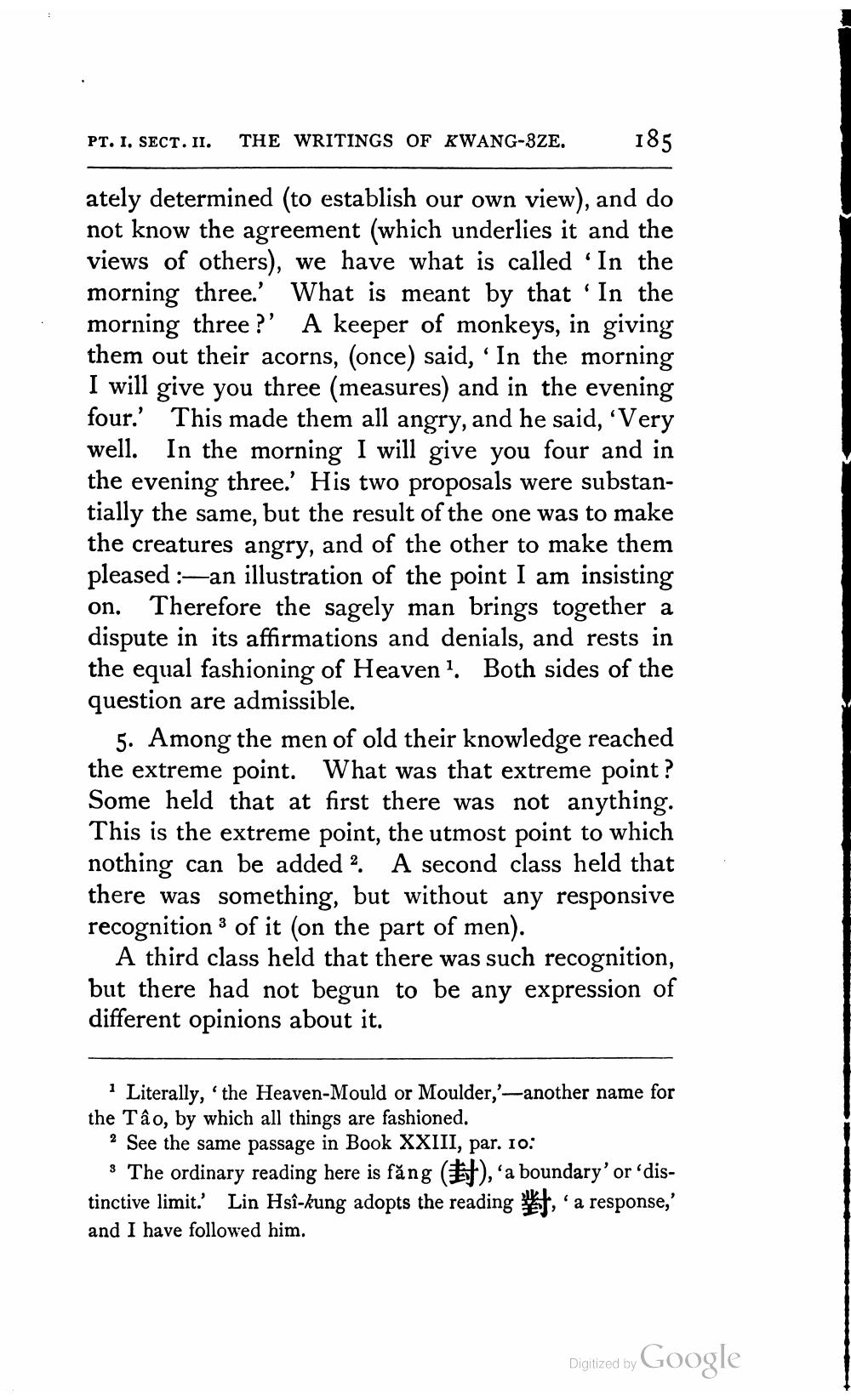________________
185
ately determined (to establish our own view), and do not know the agreement (which underlies it and the views of others), we have what is called 'In the morning three.' What is meant by that 'In the morning three?' A keeper of monkeys, in giving them out their acorns, (once) said, 'In the morning I will give you three (measures) and in the evening four.' This made them all angry, and he said, 'Very well. In the morning I will give you four and in the evening three.' His two proposals were substantially the same, but the result of the one was to make the creatures angry, and of the other to make them pleased :—an illustration of the point I am insisting on. Therefore the sagely man brings together a dispute in its affirmations and denials, and rests in the equal fashioning of Heaven 1. Both sides of the question are admissible.
PT. I. SECT. II. THE WRITINGS OF KWANG-8ZE.
5. Among the men of old their knowledge reached the extreme point. What was that extreme point? Some held that at first there was not anything. This is the extreme point, the utmost point to which nothing can be added 2. A second class held that there was something, but without any responsive recognition of it (on the part of men).
A third class held that there was such recognition, but there had not begun to be any expression of different opinions about it.
1 Literally, 'the Heaven-Mould or Moulder,'-another name for the Tâo, by which all things are fashioned.
2 See the same passage in Book XXIII, par. 10:
The ordinary reading here is făng (), 'a boundary' or 'distinctive limit.' Lin Hsî-kung adopts the reading, a response,' and I have followed him.
"
Digitized by Google




